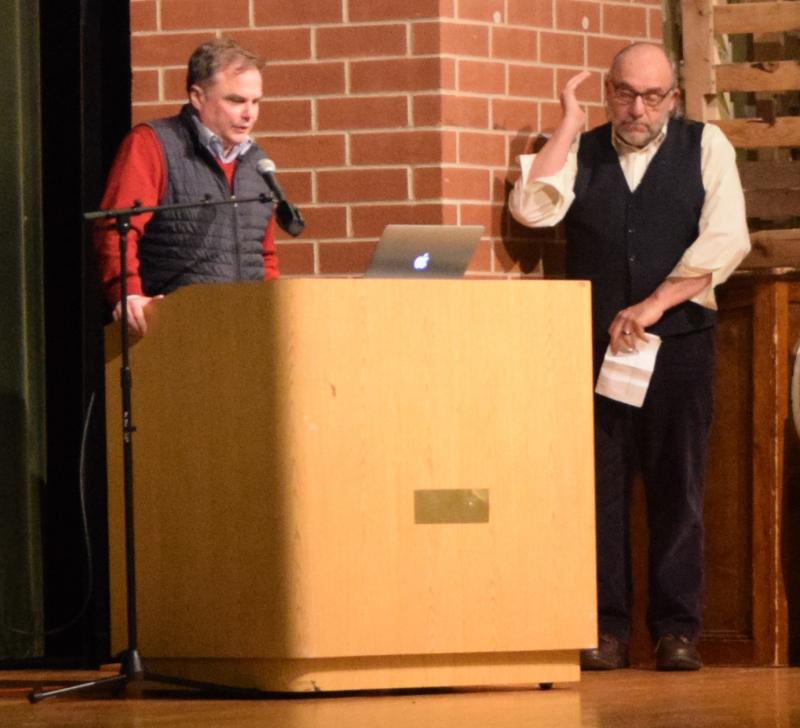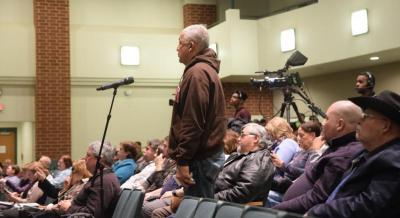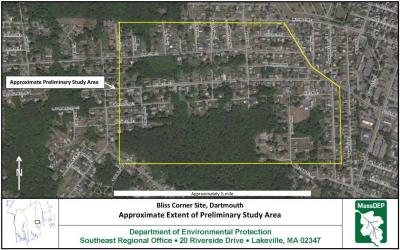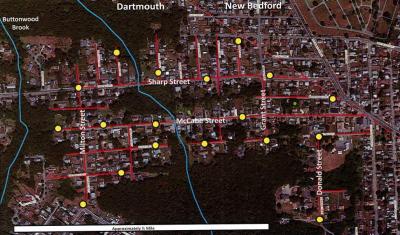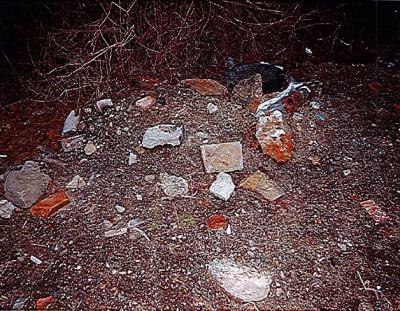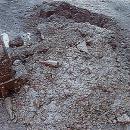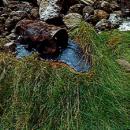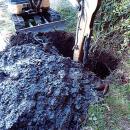Town, state officials answer questions about Bliss Corner contamination
As a state investigation uncovers more toxic chemicals in Bliss Corner, residents might be in for a long wait for answers on if, how, and why their properties could be contaminated.
On March 21, residents packed the Dartmouth High School auditorium for a public information session held by the town and state Department of Environmental Protection (MassDEP) on the current state of a toxic waste dumping investigation in their neighborhood.
The focus of the meeting was the discovery last year of polychlorinated biphenyls - toxic chemicals banned in the 1970s due to then recently-discovered health hazards - heavy metals, and other contaminants on one housing lot at 20 Kraseman Street and lower concentrations at another home at 85 McCabe Street. However, recent test results have since confirmed PCB contamination at two more properties: 31 McCabe Street and 21 Kraseman Street.
Gerard Martin, MassDEP Bureau of Waste Site Cleanup Deputy Regional Director, revealed the most recent discoveries at the public meeting, and shared background on the investigation so far.
The investigation began in July 2018, after MassDEP was called in to investigate an odor complaint at 85 McCabe Street, where construction of a new home was taking place.
Tar-like liquid, metal objects, tires, glass and other debris, and a strong petroleum odor was noted. Soil samples tested positive for a range of PCBs, metals, volatile organic compounds, and polycyclic aromatic hydrocarbons, although not high enough to be considered a “potential imminent hazard.”
In response to newspaper articles uncovered revealing the neighborhood might have been in use as a dumping ground, in October 2018 investigators also sampled a nearby property under development at 20 Kraseman Street. Much higher levels of PCBs were detected at this property, enough to consider it a “potential imminent hazard.”
The state has outlined a “preliminary study area” to investigate in detail. It includes a large residential neighborhood in between Rockdale Avenue and Milton Street. Altogether, more than 100 properties are within the study area.
Martin said the immediate focus now is installing sampling wells to determine just how widespread the contamination is. To speed up the process, between 15 and 20 borings will be installed on streets and sidewalks.
The borings and sampling wells will be installed 10 feet deep, and should be completely in place by late April. Results could begin to come in around late May. A second public will be held in the middle of summer.
Residents shared their questions, and while some were answered, others - particularly ones centered around future liability and scope - were not owing to the initial stage of the investigation.
Residents asked a multitude of questions about who could be responsible for potentially concealing the mess: Be it the town in handing out building permits, housing developers who could have discovered contaminated soil but failed to follow through with legally mandated reporting, former property owners, and whoever ultimately did the dumping.
Housing developers could be held liable for failing to properly notify the state of the discovery of contamination, Martin said, but there is a statute of limitations of two years on those types of claims. Most of the houses in the preliminary study area were built decades ago.
As for whether the Town of Dartmouth or neighboring New Bedford officials knew about dumping, Martin said requests for information have been issued to both communities for any information about historic dumping.
Health Director Christopher Michaud said since last month his staff have devoted 250 hours of work to pouring through old documents buried deep within Town Hall to get to the bottom of any information about historic dumping that might be recorded on town records.
Residents were also concerned about ending up with the bill for cleanup, if the state agency cannot determine who is ultimately responsible for the dumping. Under state law, current or former property owners, anyone who arranged or performed dumping activity could be required to pay for cleanup costs. However, Martin said state law specifically precludes cleanup costs from being incurred by owners of single-family homes.
“We’re not looking to have you guys do the cleanups, and we’re not looking for you to pay us back,” Martin said.
With contamination potentially reducing property values, several residents asked about securing property tax abatements owing to the circumstances. State Rep Chris Markey (D-Dartmouth) noted there are processes in place to abate property taxes.
“I think it would be wise for the town to at least have some information on that,” Markey said.
Town officials also reiterated their commitment to getting to the bottom of the extent and responsibility of the contamination.
“When I first heard of this from two people who were trying to do some development, I was devastated and I thought how big an area could it be,” said Markey. “It seemed to get bigger, and bigger, and bigger. I just want you to know we are going to do everything we can.”



